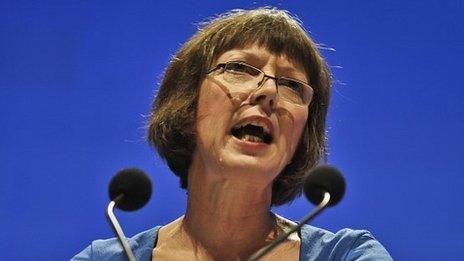Britain 'becoming like Downton Abbey', says TUC leader
- Published
- comments
Frances O'Grady: "This [general election] is the moment we get to shape our future"
The leader of Britain's trade union movement has warned of creating a "Downton Abbey-style" society in which social mobility "has hit reverse".
Frances O'Grady argued that there was "no sign of the economic recovery in most people's lives".
The TUC general secretary also said that, under the coalition, "class prejudice" was becoming "respectable".
The Conservatives said the party would not take "lectures from a cluster of union bosses on six-figure pay deals".
Ms O'Grady's speech to TUC delegates in Liverpool expanded on the annual conference's main theme of living standards.
'Silver spoons'
She said: "Are we going to settle for a nastier and poorer Britain - a Downton Abbey-style society, in which the living standards of the vast majority are sacrificed to protect the high living of the well-to-do?
"We are piling yet more riches onto a privileged few. Economic growth is back but there's no sign of it in most workers' pay packets. In fact, the gap has got worse. Top chief executives now earn 175 times the wages of the average worker.
"Silver spoons are ever more firmly clamped in the mouths of those who were born with them."
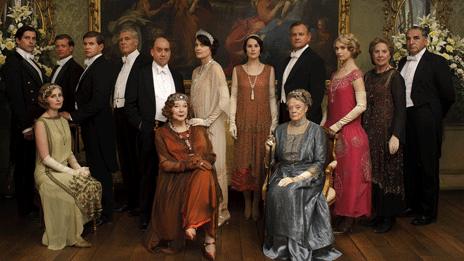
She added: "And under this government, class prejudice is becoming respectable once again."
Ms O'Grady told of mixed housing apartment blocks where social housing tenants must use a separate entrance, the so-called "poor door'" and private nurseries refusing to offer subsidised places to children from less well-off families.
Independence debate
But a Conservative Party spokesman said: "The real threat to people's living standards is the return of a Labour government, bought and paid for by Frances O'Grady and her union colleagues.
"Nothing could hurt Britain's future more than Ed Miliband as prime minister, marching to the unions' tune."
The Labour leader will visit the conference on Monday and is due to deliver a speech to union leaders in the evening.

What is social mobility?
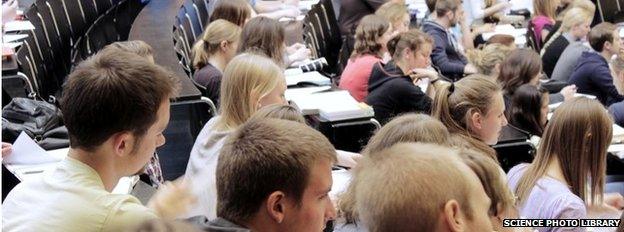
Social mobility means the degree to which a person's social status, or class, can change throughout their life.
Social mobility occurs whenever someone moves across social class boundaries. This is difficult to measure. Class might be measured by education, income or background.
Of most interest is the question of whether people from poor or deprived backgrounds are equally able as those from privileged backgrounds to achieve success - usually measured by income - in life.
Historically, social background has played a large part in determining a person's life opportunities and future success.

Mr Miliband will thank "trade unions, trade unionists and the labour movement" who, he will say, are "playing such an important role in keeping Scotland and the United Kingdom together" by supporting the campaign against Scottish independence ahead of the referendum on 18 September.
Usdaw, the NUM, the GMB, Aslef, Community and the CWU have signed a joint statement to this effect.
"These trade unions are saying that the choice which is true to Labour's traditions, to trade union traditions, is to say 'No'," he will say.
However, the RMT union is supporting the Yes campaign in Scotland and the TUC has declared itself neutral in the debate. Ms O'Grady reiterated this position during a media briefing on Sunday.
In her speech she paid tribute to Bob Crow, the outspoken RMT leader who died earlier this year, saying: "Bob may be gone, but his spirit lives on."
- Published5 September 2014
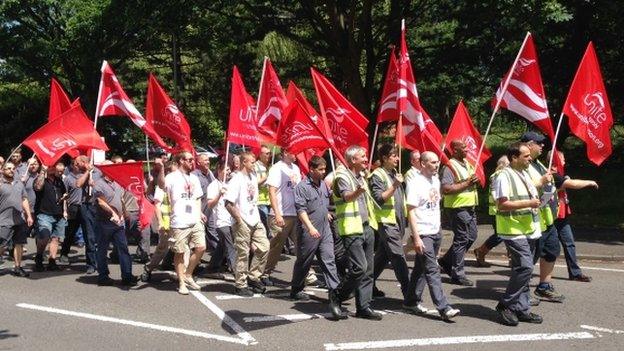
- Published28 August 2014

- Published10 July 2014
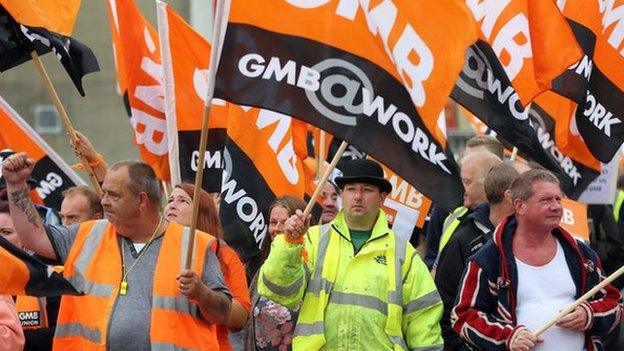
- Published10 September 2012
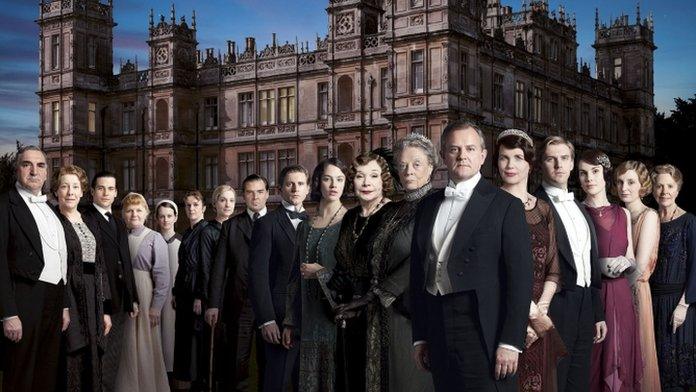
- Published9 September 2013
